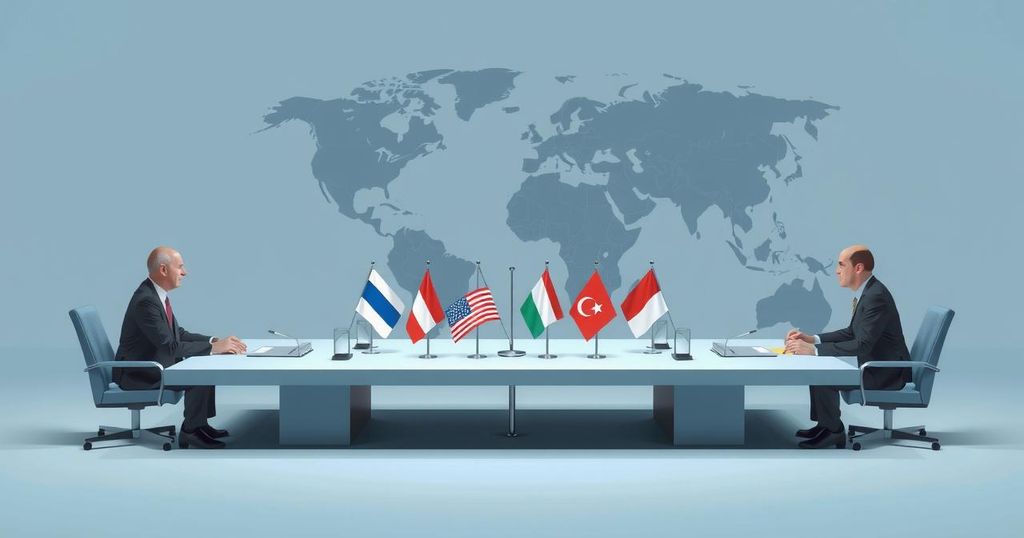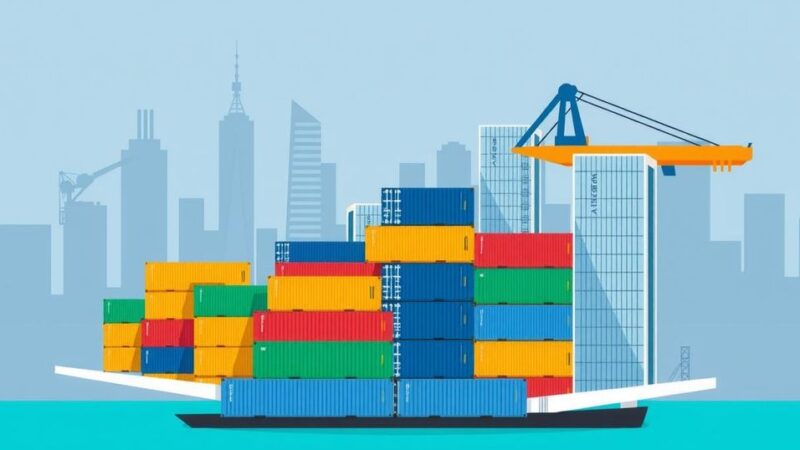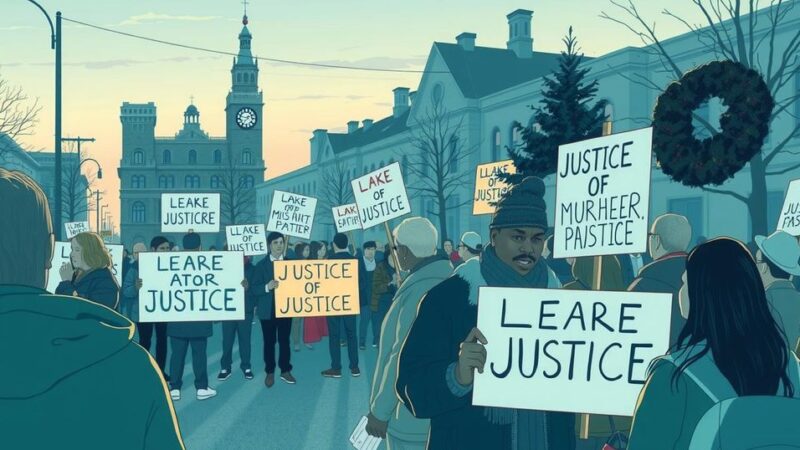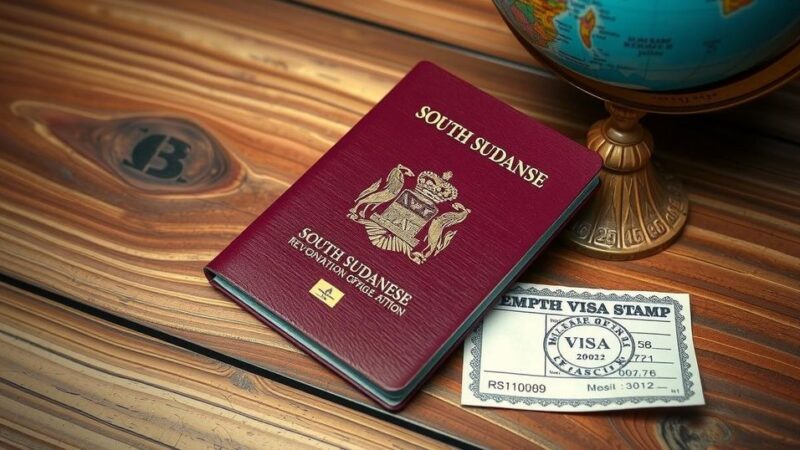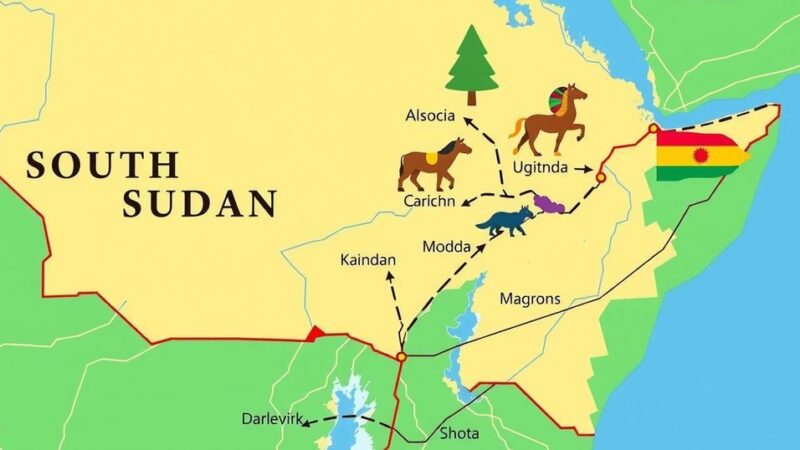Ayatollah Khamenei critiques U.S. airstrikes on Houthis, asserting U.S. panic over regional resistance. Tehran rebuffs Trump’s claims of Iranian influence over Houthis, insisting on their independence. The U.S. military actions escalate tensions amid ongoing Houthi attacks on shipping. Analysts suggest diplomatic resolutions may be more effective than military aggression in this complex conflict.
Iran’s Supreme Leader Ayatollah Ali Khamenei has expressed that the United States is experiencing “panic” due to the increasing resistance in the region, particularly condemning its military strikes against the Houthi rebels in Yemen. Tehran refuted U.S. President Donald Trump’s assertions regarding Iranian support for the Houthis, emphasizing that the group operates independently. Khamenei conveyed confidence in Yemen’s eventual victory, claiming that Western military actions illustrate the strength of the Houthis.
The recent airstrikes represent a significant escalation in a conflict that has already disrupted global trade due to Houthi attacks on Red Sea shipping. This development exacerbates existing tensions between Iran and Washington, especially as Trump intensifies pressure related to Iran’s nuclear program. The situation risks further confrontation between the nations.
Khamenei has characterized the U.S. strikes as indicative of anxiety among U.S. and allied nations about the growing power of regional resistance. He stated, “The nation of Yemen is definitely victorious. The only path is that of resistance” in a message on his X account. Khamenei insisted that the U.S. military actions reflect concerns over shifting power dynamics in the region.
Iranian officials have vehemently denied U.S. accusations of providing support to the Houthis. Foreign Minister Abbas Araghchi dismissed Trump’s warning, asserting that the U.S. lacks the authority to dictate Iran’s foreign policy. Hossein Salami, the commander of Iran’s Revolutionary Guard Corps, affirmed that the Houthis are an independent nation with their own policies. In addition, Iran’s Foreign Ministry spokesperson condemned the airstrikes as violations of international law, urging UN intervention.
The U.S. recently conducted coordinated airstrikes targeting Houthi positions across various locations, including Sanaa and Taiz. U.S. officials noted that these strikes serve as a warning to Iran, with Trump endorsing a more aggressive military strategy compared to the previous Biden administration. Trita Parsi, of the Quincy Institute for Responsible Statecraft, commented on the efficacy of U.S. strikes, arguing that aggressive military actions are unlikely to yield the desired outcomes.
Foreign Minister Abbas Araghchi remarked, “The United States government has no authority or business dictating Iranian foreign policy. That era ended in 1979.” President Trump defended the airstrikes while warning Iran, stating, “If you do, BEWARE, because America will hold you fully accountable and we won’t be nice about it!” Parsi criticized the bombing campaign, asserting that protecting sea lanes would be more effectively achieved by resolving the conflict in Gaza rather than escalating tensions in Yemen.
Given the ongoing U.S. airstrikes and continuous Houthi assaults on Red Sea vessels, the conflict is poised to escalate further. Iran’s diplomatic responses, particularly at the United Nations, will likely shape the subsequent developments of this crisis.
In conclusion, Ayatollah Khamenei’s condemnation of U.S. airstrikes reflects Iran’s strong opposition to American military actions in the region. The escalation of conflict between U.S. forces and the Houthis poses significant risks to regional stability and global trade. Iran maintains the narrative of Houthi independence while advocating for their resilience against external pressures. The ongoing situation necessitates close attention, as diplomatic maneuvers could play a crucial role in de-escalating tensions.
Original Source: www.newsweek.com
